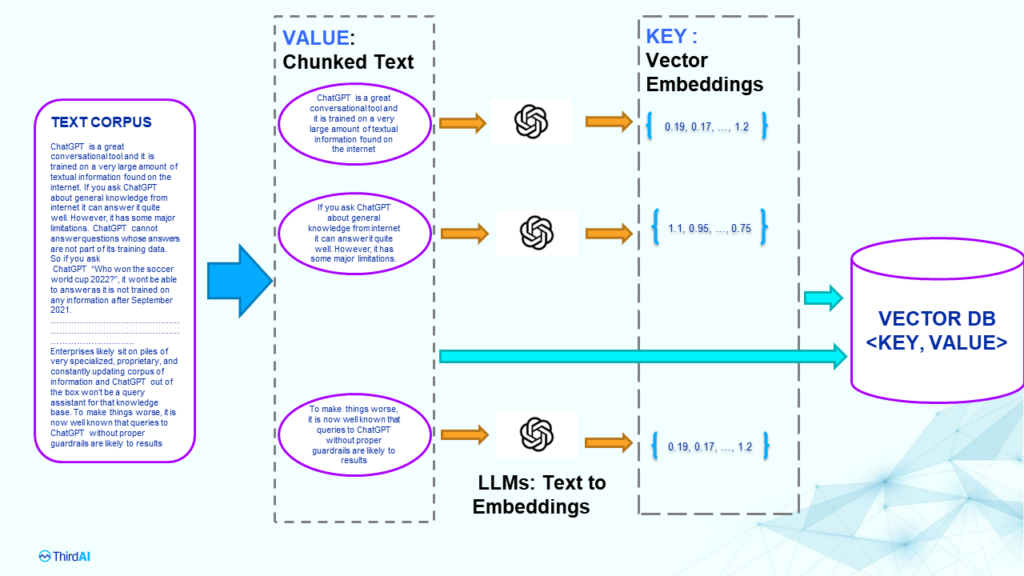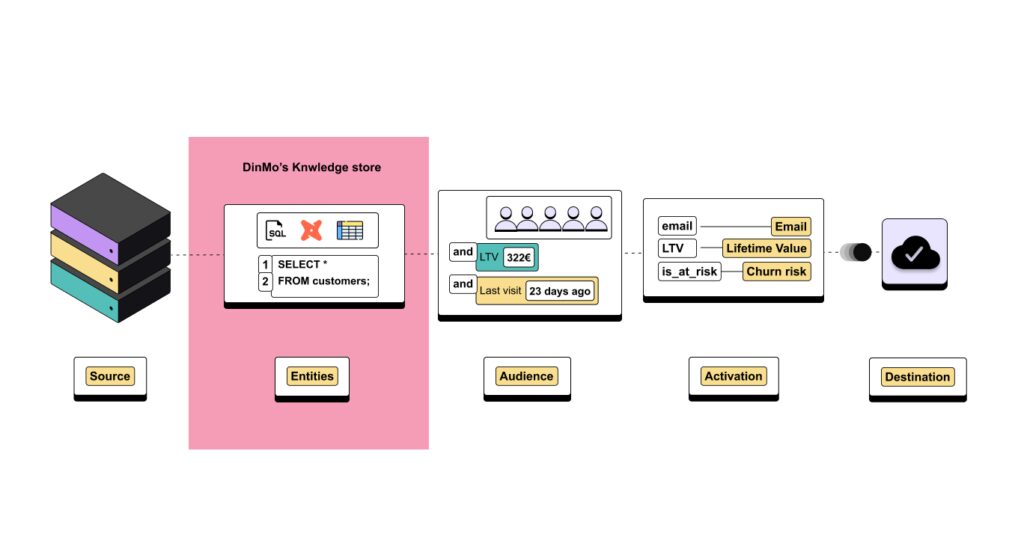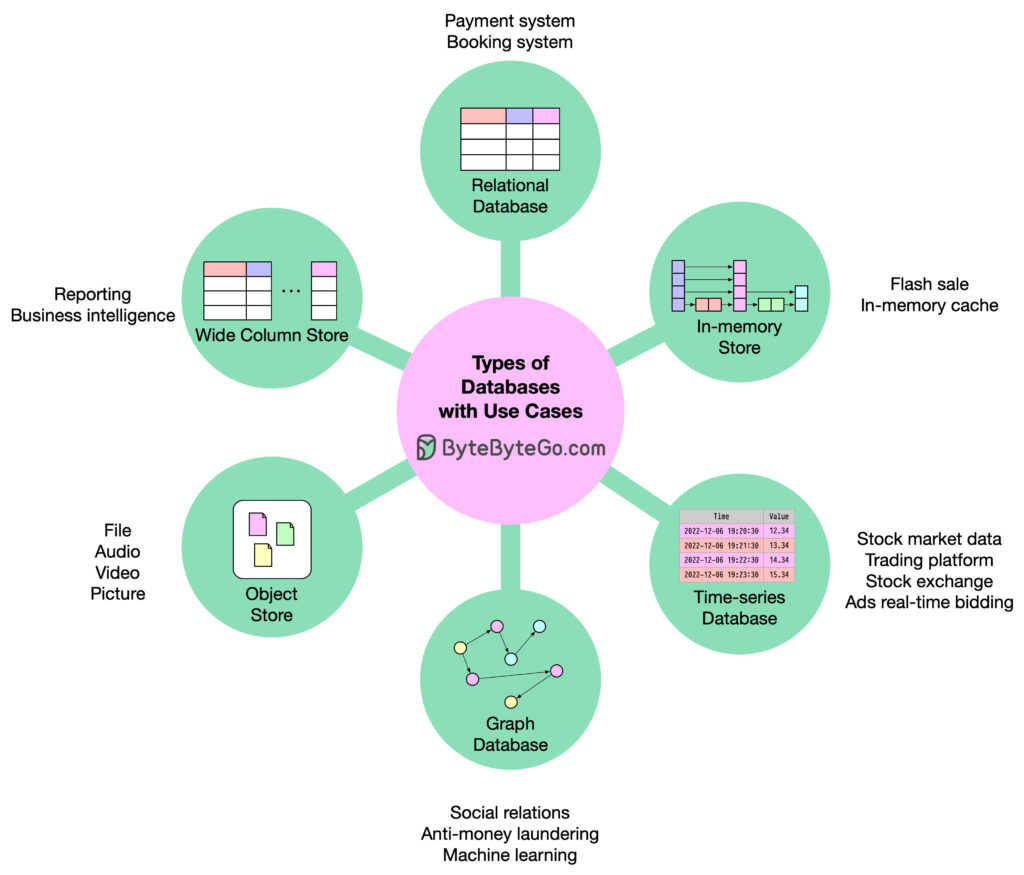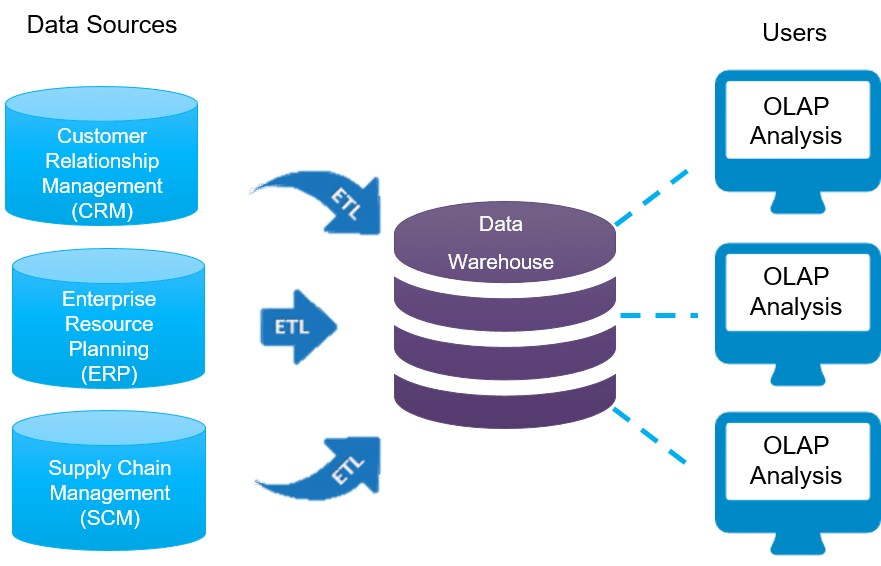You as a enterprise proprietor should usually be confronted with a sophisticated dilemma: how ought to they handle enterprise knowledge? Do it’s a must to depend on a database, which feels so acquainted and cozy, or transfer on to extra complicated knowledge administration equivalent to an information warehouse? Distinction Database and knowledge warehouse These may be issues that overlap, making resolution making harder.
Nonetheless, don’t fret. On this article, Cloudeka will share the variations between the info warehouse and database that you’ll want to perceive. You additionally perceive when and the best way to use the proper instruments to handle enterprise knowledge. Learn the outline till the top!
what is Data Backup? Understanding and How to Do It
What’s a Database and Knowledge Warehouse?

Earlier than discussing the variations between database and knowledge warehouse, let’s begin by understanding the essential that means of each.
Database Definition
Database is a well-organized assortment of knowledge that may be accessed, modified, and managed simply.Database used to retailer knowledge, together with info equivalent to buyer names, transaction particulars, and extra. In a enterprise context,a database is the preliminary basis for numerous knowledge administration methods.
Database is an important database for a wide range of knowledge administration methods that embrace buyer info, product stock, enterprise transactions, personnel data, and extra. Deep knowledge database organized in structured tables so you will discover, entry and handle the data you want shortly. You can too arrange, retailer, and retrieve info that’s essential for each day operations and resolution making with database.
Definition of Knowledge Warehouse
In the meantime,knowledge warehouse is a system designed to retailer, course of, and analyze bigger and extra complicated knowledge, together with massive knowledge and unstructured knowledge. Knowledge warehouse combines knowledge from a number of sources, together with elements knowledge warehouse equivalent to operational methods, enterprise purposes, and exterior knowledge. The info is then processed and compiled systematically to supply in-depth insights to customers.
Traits Knowledge warehouse contains its means to retailer and handle complicated knowledge, equivalent to historic knowledge and in-depth evaluation.Knowledge warehouse additionally helps environment friendly implementation so you possibly can analyze long-term tendencies and make strategic selections.
Distinction between Database and Knowledge Warehouse

After understanding the essential that means of each, allow us to concentrate on the principle variations between and knowledge warehouse beneath this:
1. Knowledge Processing System
Database typically used for transactional knowledge processing. It means,a database appropriate for duties equivalent to taking buyer orders, managing stock, and monitoring small transactions each day.
Knowledge warehouse, then again, is concentrated on analytical knowledge processing equivalent to massive knowledge or unstructured knowledge. Knowledge warehouse designed to investigate knowledge in depth and current the leads to a report format for enterprise resolution making.Knowledge warehouse able to dealing with a lot bigger knowledge volumes(massive knowledge) from database typical.
What is Data Security? Definition, Types, and Benefits for Business Continuity
2. Scale of Use
Database normally utilized by many customers with frequent and easy entry to knowledge.Database preferrred for day-to-day operational knowledge administration.
Knowledge warehouse higher suited to complicated knowledge evaluation and typically solely accessed by a small variety of customers centered on strategic resolution making.
3. Construction
Databases typically have an easier and neater construction. The info is organized in tables with rows and columns, making it simpler to entry and course of operational knowledge.
Knowledge warehouses have a extra complicated construction and mix knowledge from numerous sources in numerous codecs.Knowledge warehouses usually use compression methods to avoid wasting cupboard space.
When to Use a Database?

When do you have to use a database for enterprise knowledge administration? Under is a perfect situation to make use of a database.
1. Operational Knowledge Administration
Database appropriate for each day operational knowledge administration in your corporation.Database means that you can effectively retailer, entry and replace knowledge associated to your each day operations.
For instance, you should use a database to trace buyer orders, merchandise stock, buyer contact info, and each day enterprise transaction particulars. Withdatabase, you will discover knowledge if you want it and make sure the integrity of operational knowledge is maintained.
2. Transaction Knowledge Storage
In companies with excessive each day transaction volumes,database being a super answer for storing transactional knowledge. Databases will let you file and monitor each enterprise transaction shortly and constantly. This is essential particularly within the enterprise e-commerce, retail, or monetary providers business the place there are numerous transactions going down each day.
Withdatabase, you possibly can be certain that no knowledge is misplaced or combined up, which may negatively influence report accuracy and buyer expertise.
3. Actual-Time Knowledge Evaluation
If your corporation wants prompt entry to operational knowledge and requires real-time knowledge evaluation,a database is an acceptable selection. In a scenario like this,a database can present quick responses to knowledge requests.
An instance of its use is monitoring product stock real-time, managing incessantly altering stock, or monitoring transaction progress on web site e-commerce. Knowledge that may be accessed on-line real-time helps you are taking obligatory actions shortly to satisfy buyer wants and optimize enterprise operations.
When to Use a Knowledge Warehouse?

In the meantime,knowledge warehouse Appropriate for beneath eventualities:
1. Historic Knowledge Evaluation
Knowledge warehouse it is good if you wish to analyze historic knowledge and long-term tendencies in your corporation. Withknowledge warehouse, you possibly can retailer and entry historic knowledge spanning a number of years. You can too determine patterns, tendencies and modifications in your corporation over time.
For instance, you possibly can analyze earlier years’ gross sales to plan simpler gross sales methods.
2. Integration of Knowledge from Numerous Sources
One of many makes use of of an information warehouse is combining knowledge from numerous sources, such an enormous knowledge or unstructured knowledge. The info can come from database operations, exterior methods, and even knowledge obtained from exterior sources equivalent to social media.
That is particularly worthwhile for organizations which have knowledge unfold throughout a number of places.Knowledge warehouses combine all this knowledge right into a single knowledge supply that’s straightforward to entry and analyze.
10 Easy Ways to Backup Data So That Files Are Not Lost
3. Advanced Knowledge Evaluation
Knowledge warehouse is the proper selection if you want in-depth and complicated knowledge evaluation. You possibly can run question and extra complicated analyzes to unearth deep insights concerning the enterprise.
For instance, you possibly can carry out regression evaluation, cluster evaluation, or predictive modeling to assist strategic resolution making.Knowledge warehouse offers the pliability and efficiency wanted to discover knowledge in better depth.

